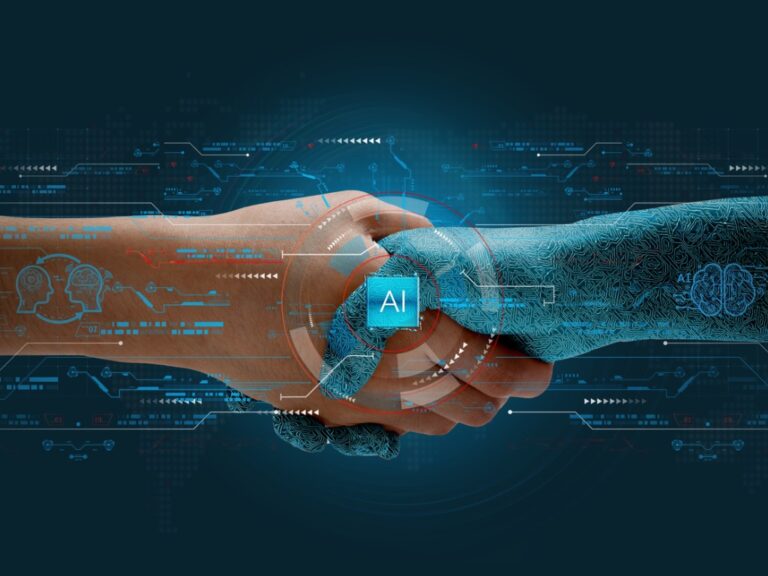Agentic AI in Legal: Could It Replace General Counsel?

By Sean Heck
May 20, 2025

Sean Heck is the Content Marketing Manager at CobbleStone Software. As an expert in contract lifecycle management software, Heck provides leading best practices, use cases, and thought leadership about the technology. He can be reached at s.heck@cobblestonesoftware.com.
Published in Today’s General Counsel, July/August 2025
What began as a quiet question has grown louder with time and increased exposure: Will agentic AI in legal—with its ability to act autonomously and make intelligent decisions—replace the role of general counsel? Could the role become obsolete?
The emergence of sophisticated artificial intelligence tools capable of tasks like automated contract review, intelligent legal research, and even initial document drafting, has sparked both excitement and apprehension among legal professionals.
Will agentic AI replace general counsel? Let’s consider the question.
A Feeling of Foreboding
The capacity for artificial intelligence to perform various duties is remarkable. It can not only identify problematic clauses in contracts with remarkable accuracy but also suggest and implement pre-approved revisions. It can field complex legal operations questions, generate draft language for specific contract types, and even summarize lengthy legal documents in mere moments. The results of these advancements are powerful to say the least, which leads to the question: where does the human lawyer, and specifically the general counsel, fit into this equation anymore?
Broader anxieties surrounding technological displacement are nothing new. We’ve all seen sci-fi movies, and we’ve all had conversations about various generative AI platforms making us dependent. However, the sophistication of legal AI—especially with its agentic capabilities—feels…different. Law and legal operations have always been deeply human endeavors. This makes it all the more chilling to envision a future where routine legal tasks are managed entirely by intelligent algorithms, leaving the strategic oversight, nuanced judgment, and human touch of general counsel in the dust.
However, to fear that agentic AI is a replacement for general counsel is short sighted.
A Short-Sighted Fear: The True Role of GCs
To view agentic AI as an imminent replacement for general counsel means underestimating the role of general counsel and overestimating the capabilities of even the most advanced artificial intelligence engine Sure, AI excels at processing data, identifying patterns, and automating repetitive tasks for the benefit of human resources. But the core responsibilities of general counsel extend far beyond those aspects. General counsel are:
- Strategic Leaders: General counsel are not merely legal technicians. They are direct advisors to C-suite leadership on matters such as legal risks, opportunities, and the intersection of the law and overall business strategy. The role requires a deep understanding of the individual company’s goals, specific industry dynamics, and the broader human political and economic landscapes. Presently, no AI systems can replicate this expertise.
- Ethical Guides: As mentioned before, legal counsel has always been linked to human experience. As such, general counsel are inherently connected to ethical considerations. Human judgment, empathy, and morals are required for navigating ethical dilemmas, interpreting the spirit of law, and ensuring that an organization operates with integrity. While programmed with rules, AI cannot truly grapple with the nuances of the human experience, ethics, and morals.
- Human Beings: General counsel are responsible for building and maintaining crucial relationships, such as with internal stakeholders, external legal partners, regulatory bodies, and even opposing general counsel. AI could not possibly replicate nuanced communication, rapport, or the art of back-and-forth communication and collaboration.
- Problem Solvers: Things happen. The legal landscape is constantly evolving. Novel challenges and unforeseen circumstances arise all the time. General counsel are adept at combining fundamental legal principles with the human experience to navigate unique situations, exercising critical thinking and sound judgment in the face of ambiguity. AI is simply trained on existing data. The technology struggles with navigating truly unforeseen circumstances that fall outside of the purview of its training and parameters.
A New Era with Agentic AI
It’s hard to keep track of everything that sets general counsel apart from agentic AI. Rather than succumbing to fears of an “AI invasion,” general counsel should embrace agentic AI as a means to enhance and empower their existing skills. These tools can be used to automate time-consuming tasks, freeing up legal teams to focus on higher-level, inherently human strategic initiatives. Consider, for example, the use of agentic AI to handle the initial stages of contract review. Doing so allows legal experts to concentrate on negotiations and bespoke clauses that truly require their expertise and nuanced input.
The future of the legal profession, and the role of general counsel within it, is not a future of replacement, but rather a future of strategic integration of two forces. Agentic AI offers the potential to augment human capabilities, enhance efficiency, and mitigate risks—not replicate critical thinking, ethical judgment, and nuanced understanding of business and human elements that define the indispensable role of general counsel.
This “invasion” is not a hostile takeover. Agentic AI is a new ally ready to work alongside human expertise and forge a more positive and transformative legal future.
Critical intelligence for general counsel
Stay on top of the latest news, solutions and best practices by reading Daily Updates from Today's General Counsel.
Daily Updates
Sign up for our free daily newsletter for the latest news and business legal developments.




